Getting a new dog is a fun and exciting time in life — you’ve just met your new best friend! So, how can you start your dog off on the right foot? It’s not all just kibble, toys, and snuggles — you have to spend time socializing with your dog too. It’s especially important that your dog is socialized in their first few months of life because not doing so can lead to a range of behavioral issues, including fear and reactivity. Here are common dog socialization mistakes new owners make.
1. Waiting to Socialize Until Your Puppy Is Vaccinated
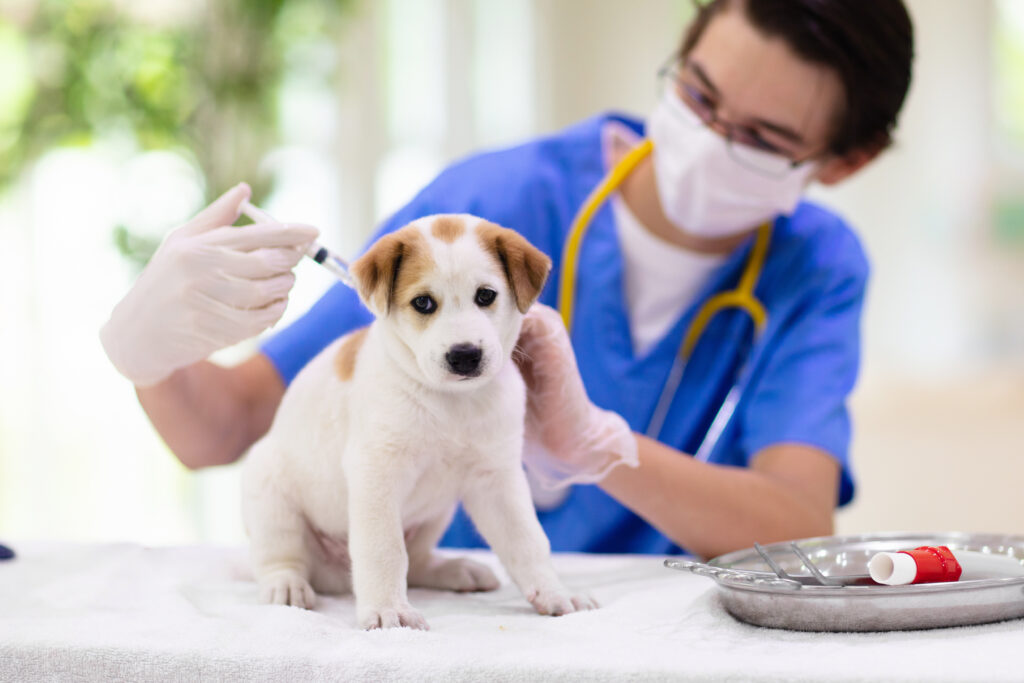
There are ways to socialize your new puppy even if they aren’t vaccinated yet.
©FamVeld/Shutterstock.com
It’s generally recommended that you don’t take your puppy out and about until they get their first set of vaccinations, which usually are given between six and eight weeks. However, the fear period for developing dogs, where negative experiences can create lasting imprints, starts at around eight weeks. If your puppy hasn’t had all their shots yet at this point, you can still carry them around, even if you don’t let them touch the ground. This gives them the chance to start seeing, hearing, and smelling new things.
2. Limiting How Your Dog Is Socialized
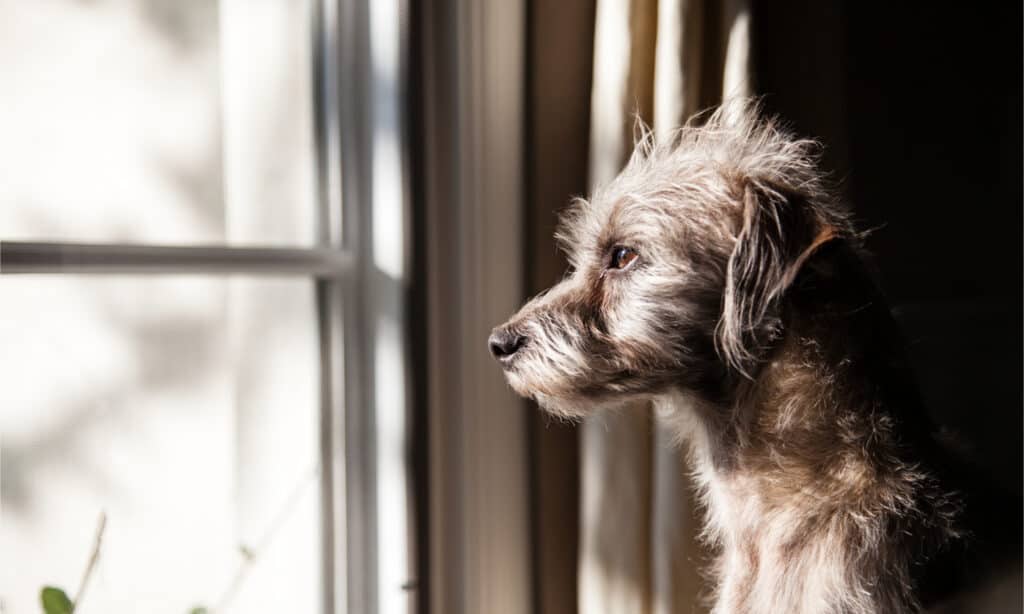
Your dog needs to be introduced to many new experiences in the world to avoid future problems.
©GoodFocused/Shutterstock.com
Socializing your dog doesn’t just mean taking them on a few walks. To help avoid a future anxious or nervous dog, make an effort to expose them to a range of environments with different levels of noise, people of various ages and ethnicities wearing all kinds of clothing, and places where they can safely see other dogs.
3. Not Spending Enough Time Socializing Your Dog
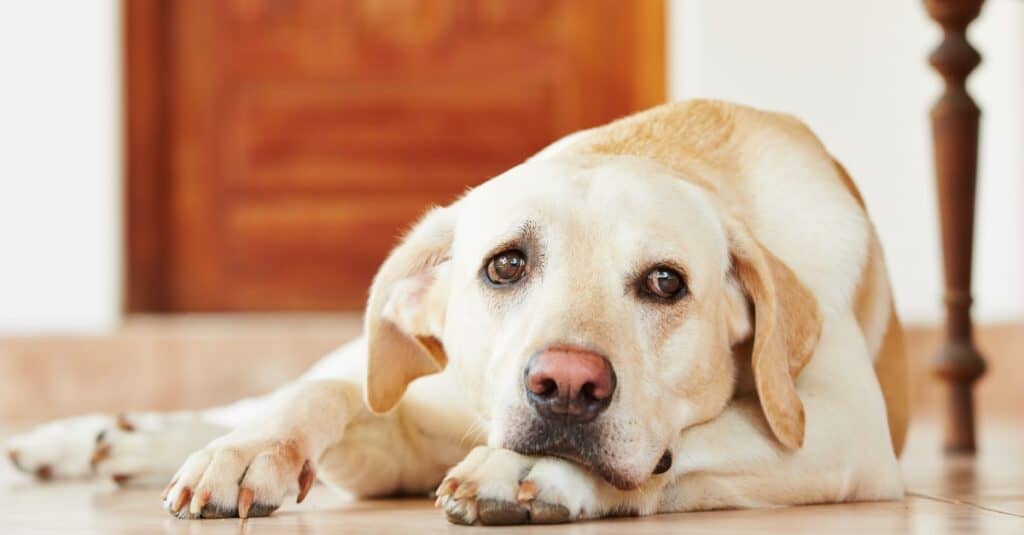
The more varied experiences a young dog has, the better it is for avoiding future behavioral problems.
©Jaromir Chalabala/Shutterstock.com
One of the worst dog socialization mistakes is limiting their experiences. Even if you lead a relatively quiet life and aren’t extremely social, your dog still needs to see and hear all types of things at the beginning of their lives, as you never know what future situations may arise. This may include medical emergencies, travel, or your pet needing to temporarily stay in a new environment.
4. Starting Training Too Late
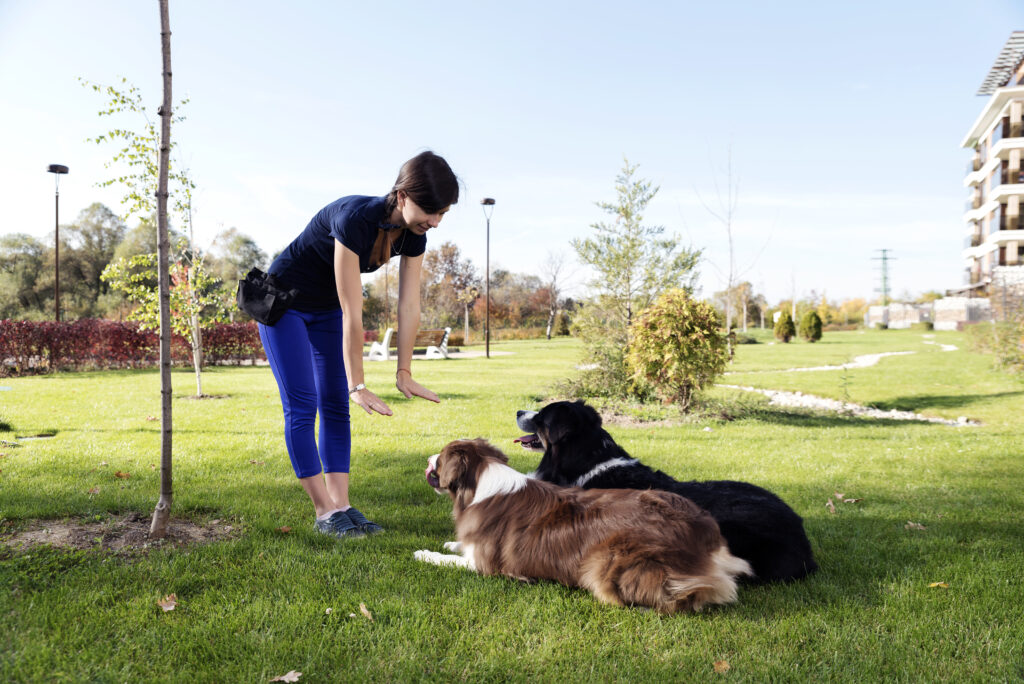
Enroll your dog in a puppy training class right after they get their first set of vaccinations.
©Paya Mona/Shutterstock.com
An ideal time to start training your puppy is around 8 weeks old, according to the American Kennel Club. This is around the same time it’s recommended to introduce them to new environments. Joining a puppy-specific training class is a great way to expose your dog to other dogs safely and learn some basic obedience.
5. “Flooding” Your Dog
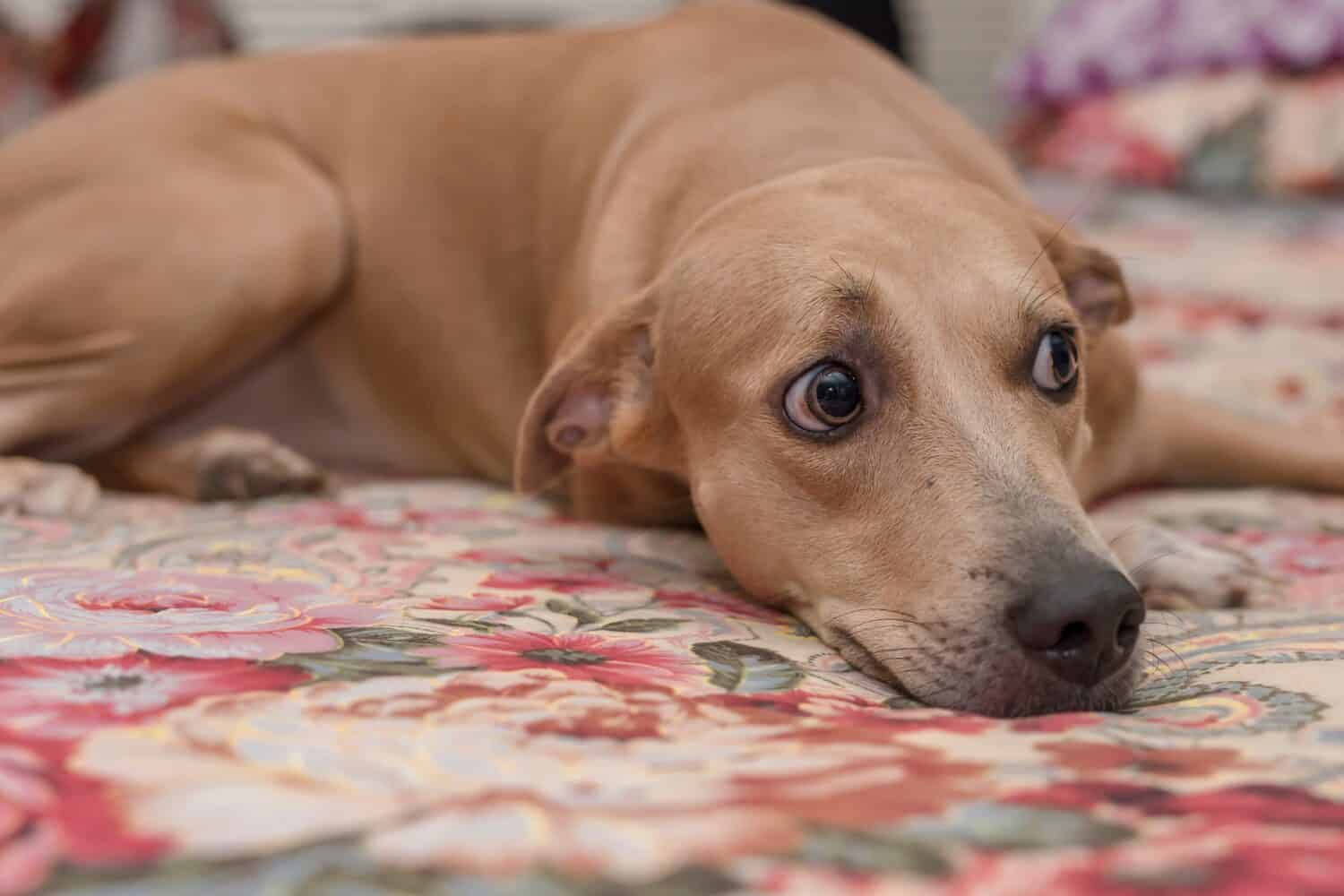
Keep new interactions short and sweet so your dog doesn’t get overwhelmed.
©MDV Edwards/Shutterstock.com
Flooding refers to overwhelming a dog with so many stimuli that it shuts down mentally. Although new exposures are important to socialization, young dogs may need them in small doses before they get tired or overwhelmed. The most important thing is to keep the interaction positive.
6. Not Controlling Socialization Enough
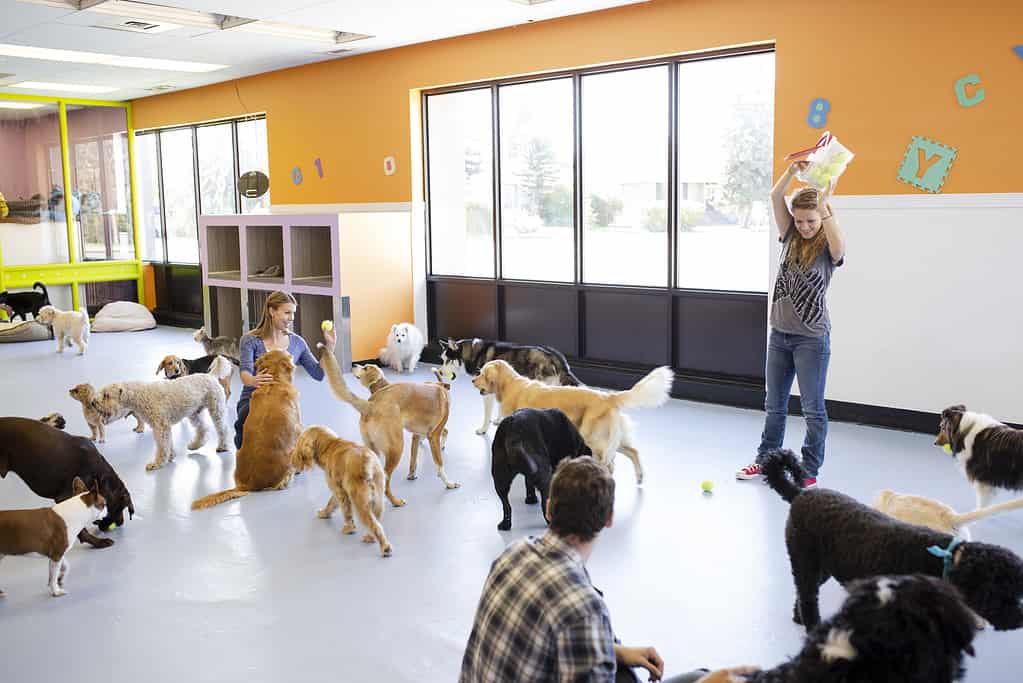
Keep an eye on your dog at dog parks or in large groups when they are just beginning to socialize.
©iStock.com/Hero Images
During the fear period, it’s worth being a little careful with both the activities you pick and the other animals your dog meets, as it could leave a lasting impression. For example, dog parks seem like they would be a great way to socialize, but they can be a minefield, with dogs of all levels of behavior and owners that may or may not be able to handle their pets. So tread carefully.
7. Letting Your Dog Go Without a Leash
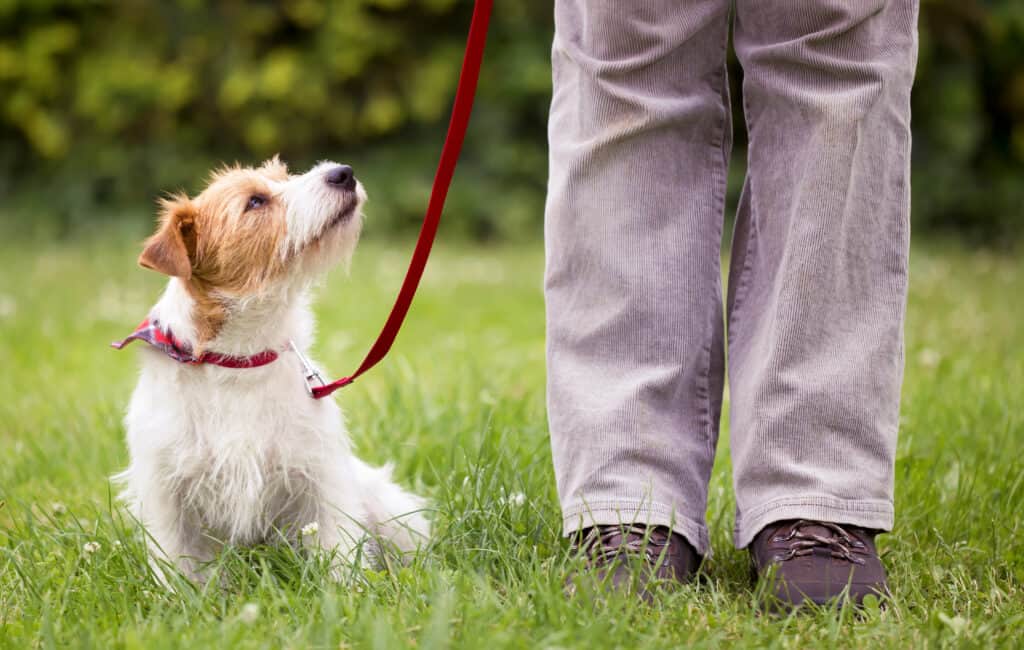
Using a leash helps you keep your dog safe while they’re socializing.
©Reddogs/Shutterstock.com
Socializing your dog doesn’t mean letting it do whatever it wants and go wherever it wants. A leash gives you more control over your pet as it explores new scenarios and environments. It helps you keep the interaction safe and positive!
8. Letting Your Dog Meet Every Dog and Person They Cross Paths With
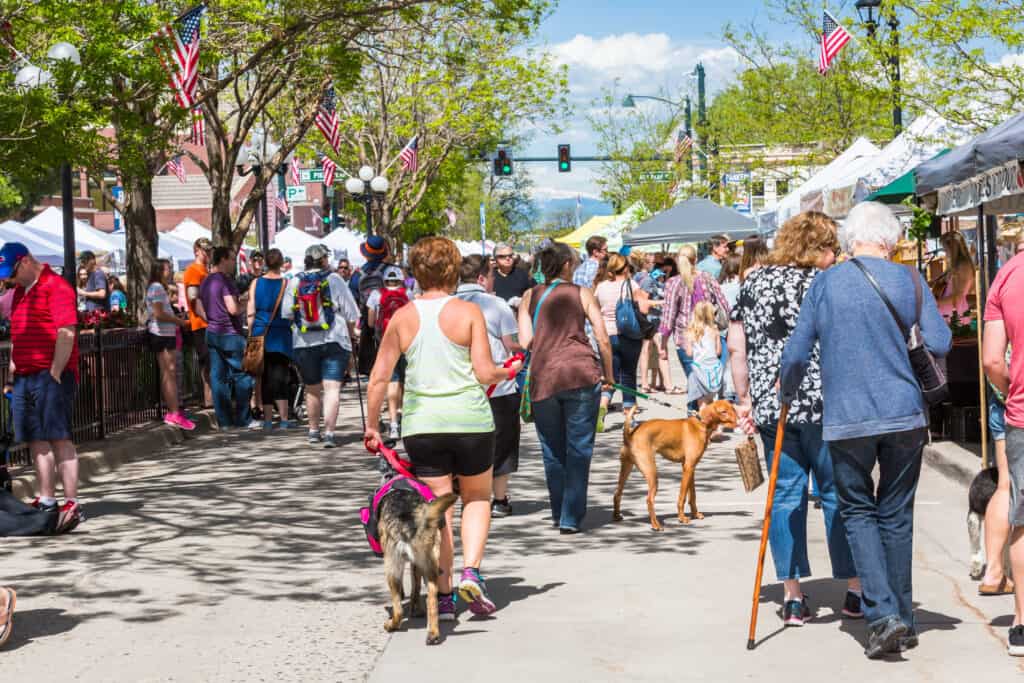
Dogs should know how to be in public without meeting everyone they see.
©iStock.com/arinahabich
Dogs need to learn how to be around other dogs and people without interacting with every one of them, as not every person or dog will want to interact with your dog. On the other hand, don’t let strangers just pick up or pet your dog however they would like — you are your dog’s advocate.
9. Expecting Your Dog to Like Everyone and Every Environment
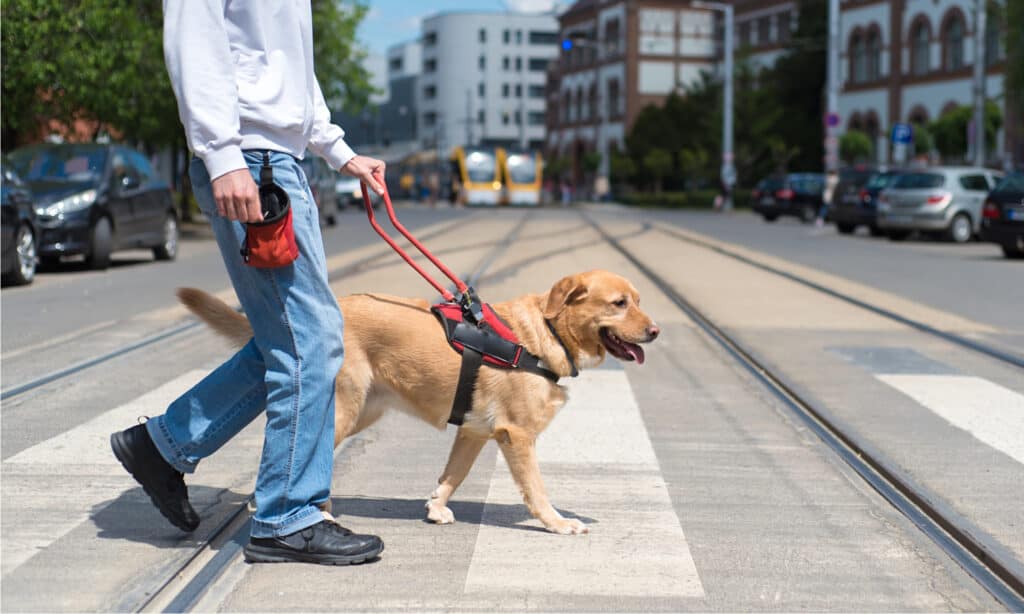
Ultimately, dogs don’t need to love going anywhere and everywhere.
©SasaStock/Shutterstock.com
While it’s important to expose your dog to as much as possible in the beginning, you shouldn’t expect that this means your dog will always enjoy going everywhere. Just like people, some dogs may not like certain people or animals or certain places. The goal is for a dog to handle various scenarios calmly and without reacting.
10. Punishing Your Dog’s Behavior During the Socialization Process
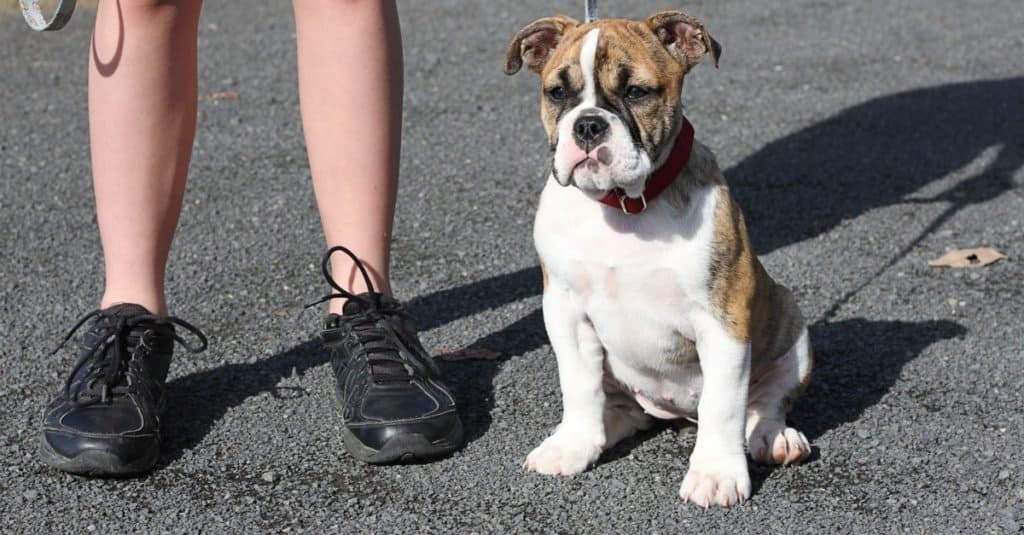
Keep new environments a positive experience for your dog.
©JCM Photos/Shutterstock.com
Dogs are learning as much as they can during this impressionable time of their lives. Yelling or punishing for a mistake may lead to fearful behavior. Instead, focus on positive reinforcement, which means rewarding them when they get something correct.
11. Treating Your Dog Like a Baby
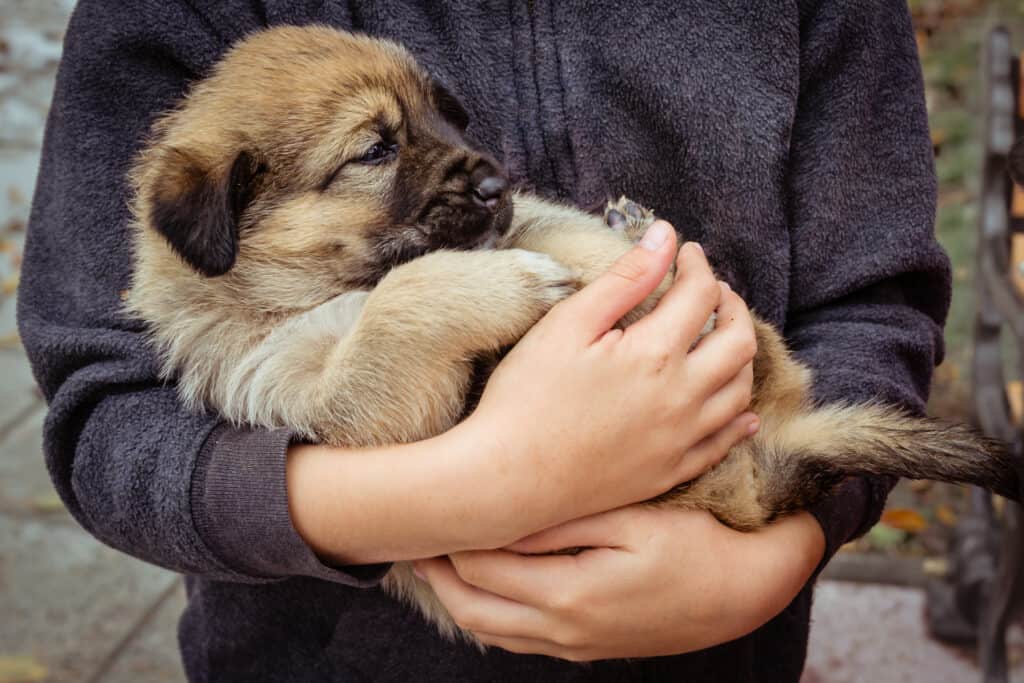
Use a low and calm voice when introducing your dog to new scenarios.
©HASphotos/Shutterstock.com
Some people may treat their dog like a baby, but this is a big socializing mistake. Using a high-pitched voice and telling them, “It’s okay, it’s okay,” while introducing them to new things might have the opposite effect intended. Your high voice may trigger a dog to become overly excited or nervous. Instead, keep your tone low and calm, like the new stimulus is no big deal.
11 Mistakes New Dog Owners Make Socializing Their Dogs:
| 1. | Waiting to Socialize Until Your Puppy Is Vaccinated |
| 2. | Limiting How Your Dog Is Socialized |
| 3. | Not Spending Enough Time Socializing Your Dog |
| 4. | Starting Training Too Late |
| 5. | “Flooding” Your Dog |
| 6. | Not Controlling Socialization Enough |
| 7. | Letting Your Dog Go Without a Leash |
| 8. | Letting Your Dog Meet Every Dog and Person They Cross Paths With |
| 9. | Expecting Your Dog to Like Everyone and Every Environment |
| 10. | Punishing Your Dog’s Behavior During the Socialization Process |
| 11. | Treating Your Dog Like a Baby |
The photo featured at the top of this post is © iStock.com/GlobalP
Ready to discover the top 10 cutest dog breeds in the entire world?
How about the fastest dogs, the largest dogs and those that are -- quite frankly -- just the kindest dogs on the planet? Each day, AZ Animals sends out lists just like this to our thousands of email subscribers. And the best part? It's FREE. Join today by entering your email below.
Thank you for reading! Have some feedback for us? Contact the AZ Animals editorial team.







